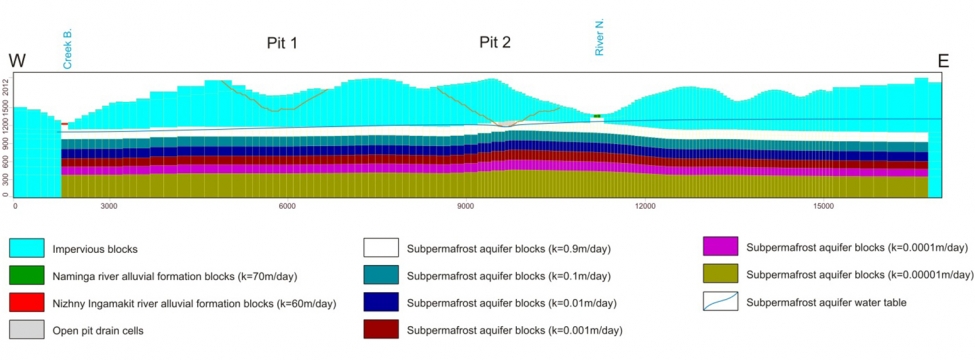To serve you better, our new website displays information specific to your location.
Please visit the site and bookmark it for future use.
Predicting Dewatering Requirements of an Open Pit within a Subpermafrost Groundwater System with Highly Variable Recharge through Taliks
Author(s):
Vladimir Ugorets
Date:
Sunday, April 12, 2015
First presented:
Mine Water Solutions 2015
Media:
Type:
Published paper
Category:
Hydrogeology
Water Management
A series of field hydrogeological studies was conducted for a copper project in southern Siberia (Russia) to characterize a subpermafrost groundwater system; its hydraulic parameters, water level regime, and recharge/discharge conditions from/to surface-water bodies through open taliks, which are developed under river valleys. A proposed deep open pit will result in excavation of the upper part of the subpermafrost bedrock aquifer, which is transmissive and characterized by highly variable, seasonal water level fluctuations up to 90 m. The conceptual hydrogeological model is based on limited testing completed in deep coreholes using the IPI packer system and more than two years of water level monitoring data in numerous piezometers. A 3-D numerical groundwater model was developed and calibrated in the transient state to match observed highly variable seasonal changes in water levels and stream flows. A detailed stream-routing package was used to reproduce surface-water flows as a source of recharge to the subpermafrost groundwater system based on precipitation, evaporation, and stream flow data. The field data show that seasonal changes in stream flows result in significant variations in water levels, creating the largest natural stress to the groundwater system. A groundwater model, calibrated to this large recharge stress, is more reliable than a model based only on the results of short-term hydrogeological testing. The calibrated model was used to predict passive inflow to the proposed open pit and active dewatering requirements, in order to reduce residual passive inflow to a manageable amount under severe winter conditions.



